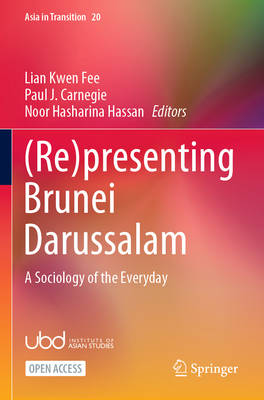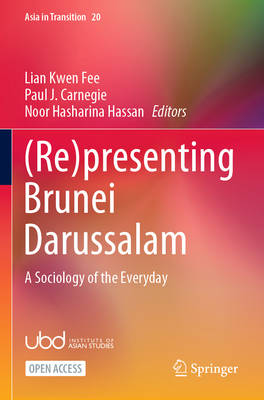
- Retrait gratuit dans votre magasin Club
- 7.000.000 titres dans notre catalogue
- Payer en toute sécurité
- Toujours un magasin près de chez vous
- Retrait gratuit dans votre magasin Club
- 7.000.0000 titres dans notre catalogue
- Payer en toute sécurité
- Toujours un magasin près de chez vous
(Re)Presenting Brunei Darussalam
A Sociology of the Everyday
76,45 €
+ 152 points
Description
This open access book undertakes a sociological investigation of life in Brunei Darussalam, often portrayed as one of the most self-contained, secretive, and resolutely monarchical countries in Southeast Asia. Besides its natural resource wealth and Malay Islamic monarchy, everyday life in this micro-state remains relatively closed off to the outside world, and its scholarship. This is in part due to a tendency in mainstream, Western-centric social science to overlook the intersubjective ways in which individuals manage social and cultural material within the context of everyday life. This collection of scholarly observations and experiences of life at a range of sites across Brunei Darussalam over the last ten years are woven together from four interrelated parts covering religious life, issues of gender, the space of place, and ethnic formation. By taking the reader into the lives of everyday Bruneians, the book gives a composite and inside-out view of Brunei Darussalam that foregrounds its nuanced diversity. At the same time, it encourages a more critical reflection on the ways in which the authors approach the study of everyday life in Southeast Asia. It is a key text for geographers and sociologists studying Southeast Asia, and is relevant to graduate students and scholars researching religion, gender, race, ethnicity, and identity formation in the region.
Spécifications
Parties prenantes
- Editeur:
Contenu
- Nombre de pages :
- 346
- Langue:
- Anglais
- Collection :
- Tome:
- n° 20
Caractéristiques
- EAN:
- 9789811960611
- Date de parution :
- 07-04-23
- Format:
- Livre broché
- Format numérique:
- Trade paperback (VS)
- Dimensions :
- 156 mm x 234 mm
- Poids :
- 530 g

Les avis
Nous publions uniquement les avis qui respectent les conditions requises. Consultez nos conditions pour les avis.





